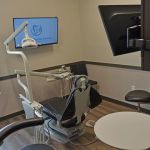Why Elderly Adults Are More Prone to Tooth Loss: Key Factors and Prevention
- 1. Underlying Causes of Tooth Loss in Elderly Adults
- 2. The Role of Dental Hygiene in Preventing Tooth Loss
- 3. The Effects of Aging on Teeth and Gums
- 4. Case Study: Real-Life Impact of Tooth Loss in Seniors
- 5. Effective Prevention Strategies for Elderly Adults
1. Underlying Causes of Tooth Loss in Elderly Adults
Tooth loss in elderly adults is often the result of a combination of factors. One of the most common causes is periodontal disease, which is an infection of the gums that affects the bone structure supporting the teeth. Over time, this condition can lead to tooth loss if not managed. Another contributing factor is the decline in saliva production as people age. Reduced saliva flow can lead to dry mouth, which increases the risk of tooth decay and gum disease.
2. The Role of Dental Hygiene in Preventing Tooth Loss
Maintaining proper dental hygiene is essential for preventing tooth loss in elderly adults. Unfortunately, as people age, they may not always adhere to good oral care practices. Regular brushing with fluoride toothpaste, daily flossing, and regular visits to the dentist for professional cleanings are critical in keeping gums and teeth healthy. Additionally, elderly adults with arthritis or limited mobility may find it difficult to maintain effective brushing techniques, highlighting the need for adaptive dental tools and assistance.
3. The Effects of Aging on Teeth and Gums
Aging naturally affects the structure and health of the teeth and gums. Over time, tooth enamel wears down, making teeth more susceptible to decay. Gums also naturally recede, exposing more of the tooth’s surface, which can lead to increased sensitivity and greater susceptibility to infection. Furthermore, many elderly adults may experience health conditions such as diabetes or osteoporosis, which can exacerbate oral health problems and increase the likelihood of tooth loss.
4. Case Study: Real-Life Impact of Tooth Loss in Seniors
Consider the case of Mary, a 72-year-old woman who struggled with tooth loss for several years. Despite regular brushing and occasional flossing, she developed advanced gum disease due to inadequate oral care in her younger years. Mary’s story illustrates how tooth loss can dramatically impact quality of life. She faced difficulty eating and speaking, leading to social isolation and a decline in self-esteem. After receiving dental implants and committing to better oral hygiene practices, her life improved significantly. Mary's case highlights the importance of early intervention and consistent oral care in preventing severe consequences.
5. Effective Prevention Strategies for Elderly Adults
Preventing tooth loss in elderly adults requires a multi-faceted approach. Here are some key strategies:
- Regular Dental Checkups: It’s essential for elderly adults to visit their dentist regularly for checkups and professional cleanings to catch any early signs of gum disease or tooth decay.
- Dietary Adjustments: A diet rich in calcium and vitamin D can help maintain healthy teeth and bones. Limiting sugary snacks and drinks can also reduce the risk of cavities.
- Use of Adapted Oral Care Products: For those with limited dexterity, tools such as electric toothbrushes and floss holders can help make brushing and flossing more effective.
- Stay Hydrated: Maintaining adequate hydration can help prevent dry mouth, a condition that is common in elderly adults and can increase the risk of tooth decay.
By implementing these strategies, elderly adults can significantly reduce their risk of tooth loss and enjoy a better quality of life in their later years.







 Kocian Family Dental5.0 (486 review)
Kocian Family Dental5.0 (486 review) Haines Family Dental5.0 (671 review)
Haines Family Dental5.0 (671 review) Edward Kim DMD4.0 (16 review)
Edward Kim DMD4.0 (16 review) Pro Dentists of Buford4.0 (575 review)
Pro Dentists of Buford4.0 (575 review) Exclusively Endodontics4.0 (104 review)
Exclusively Endodontics4.0 (104 review) Engel Neil R DDS5.0 (7 review)
Engel Neil R DDS5.0 (7 review) The Importance of Oral Health Education During Pregnancy for a Healthy Pregnancy
The Importance of Oral Health Education During Pregnancy for a Healthy Pregnancy Best Tips for Brushing Your Teeth Properly for Healthy Gums: Essential Techniques for Oral Health
Best Tips for Brushing Your Teeth Properly for Healthy Gums: Essential Techniques for Oral Health Why Skipping Dental Checkups Can Lead to Bigger Oral Health Problems
Why Skipping Dental Checkups Can Lead to Bigger Oral Health Problems Advantages of Porcelain Dental Restorations
Advantages of Porcelain Dental Restorations How Can Diabetes Cause Tooth and Gum Problems? Preventing and Managing Oral Health Issues
How Can Diabetes Cause Tooth and Gum Problems? Preventing and Managing Oral Health Issues Healthy Habits for Promoting Good Oral Health and Hygiene: Tips for a Healthy Smile
Healthy Habits for Promoting Good Oral Health and Hygiene: Tips for a Healthy Smile